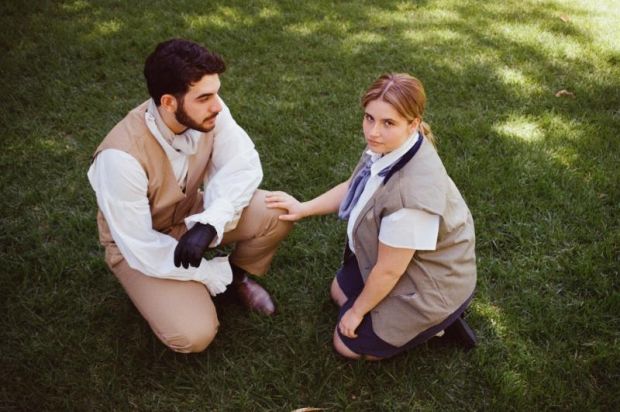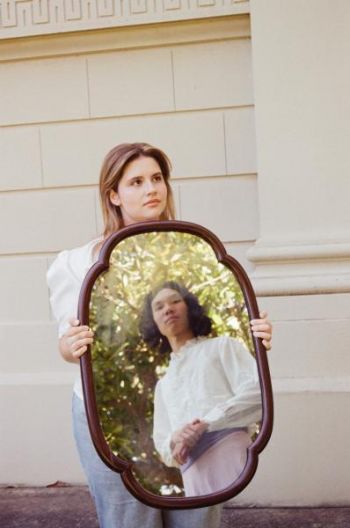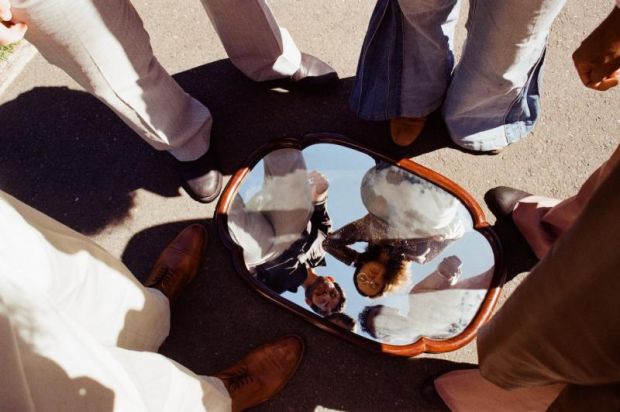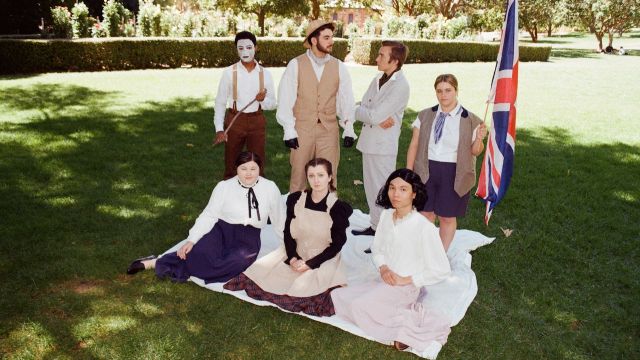Cloud Nine
Cloud Nine is a play by Caryl Churchill who is arguably the most successful and best-known socialist-feminist playwright to have emerged from Second Wave feminism. Premiering in 1979, it deals with almost every contentious, debated or regretted issue in human existence, and thus, is complex and challenging for any company to perform. Set in two acts, the first is set in colonial times. The second act is firmly in 1980. It is about relationships between women and men, men and men, women and women. It is about sex, work, mothers, Africa, power, children, grandmothers, politics, money, Queen Victoria, and sex. Ironically, Cloud 9 is a cliched metaphor for being happy and contented. The literal meaning of 'cloud nine' is from an early scientific classification system for clouds and in this play, it is fair to assume that no-one is on ‘cloud 9’.

In his directorial debut, TSSS’s director for Cloud 9 is Rajiv Paranavithana and he has stayed true to the text and its intentions. This is a play that aims to change views about gender, age and power and one of its tools involves men playing women and women playing men, for instance Betty, a colonial wife is played by a man (the same actor who plays Edward in act two). The colonial administrator Clive in act one, becomes five-year-old Cathy in act two. Thus, children are played by adult women and men, while men and women play each other's roles. A clever twist is Lelum Rathnayake undertaking a ’white face’ application on stage to achieve the white skin look for a servant/slave who is traditionally played by a white skinned actor.
 Act one uses farcical elements and biting sarcasm to mock British colonial behaviour and rigid roles. No-one is left unscathed. Act two is relatable and realistic and seizes the opportunity to explore relatively recent changes to societal tolerances, roles and expectations. The two sets are simple and functional and it is clear watching scene changes that this is a committed, all hands on deck company. Sound by Tommy Raets has potential for mood creating, but abrupt stopping and starting of music would benefit from being faded. Lighting by Ella Anderson worked effectively, ensuring that actors and action could be clearly seen. Airlie Windle’s costumes evoked both eras with Lelum Rathnayake’s ‘John Travolta look’ for Gerry in Act two being ‘spot on’ for the character.
Act one uses farcical elements and biting sarcasm to mock British colonial behaviour and rigid roles. No-one is left unscathed. Act two is relatable and realistic and seizes the opportunity to explore relatively recent changes to societal tolerances, roles and expectations. The two sets are simple and functional and it is clear watching scene changes that this is a committed, all hands on deck company. Sound by Tommy Raets has potential for mood creating, but abrupt stopping and starting of music would benefit from being faded. Lighting by Ella Anderson worked effectively, ensuring that actors and action could be clearly seen. Airlie Windle’s costumes evoked both eras with Lelum Rathnayake’s ‘John Travolta look’ for Gerry in Act two being ‘spot on’ for the character.
Paranaithana’s directing consistently had actors front of stage, declaiming to the audience. When further back, dialogue, with some, become quiet, overly fast and conversational, thus the balance between actors is inconsistent and challenges the sense of a cohesive story. There are pockets of fine acting. Regan Holmes as three different characters was credible and different as each one. Oswin Kwan was delightful as simpering Betty and believable as a gentle young gay man. Rathnayake, as Gerry was both poignant and spellbinding, but less so for me as Joshua due to what seems to be much ‘overacting’ by all of the cast in Act one. Charlie Milne shows lots of promise and the opportunity to further explore portraying anger as more than shouting would enhance his already strong stage presence. Whilst full of ‘upstaging’ his Cathy was a convincing brat.

TGSS, in a sense, works under the auspices of The Adelaide Theatre Guild, one of Adelaide’s oldest theatre companies. There are undoubtedly opportunities for these young aspiring performers and other creatives to capitalise on that relationship and glean from their wealth of experience and practice. This is a very short season. There are only four shows of this thought-provoking play in the season, so don’t be disappointed.
Jude Hines
Subscribe to our E-Newsletter, buy our latest print edition or find a Performing Arts book at Book Nook.

